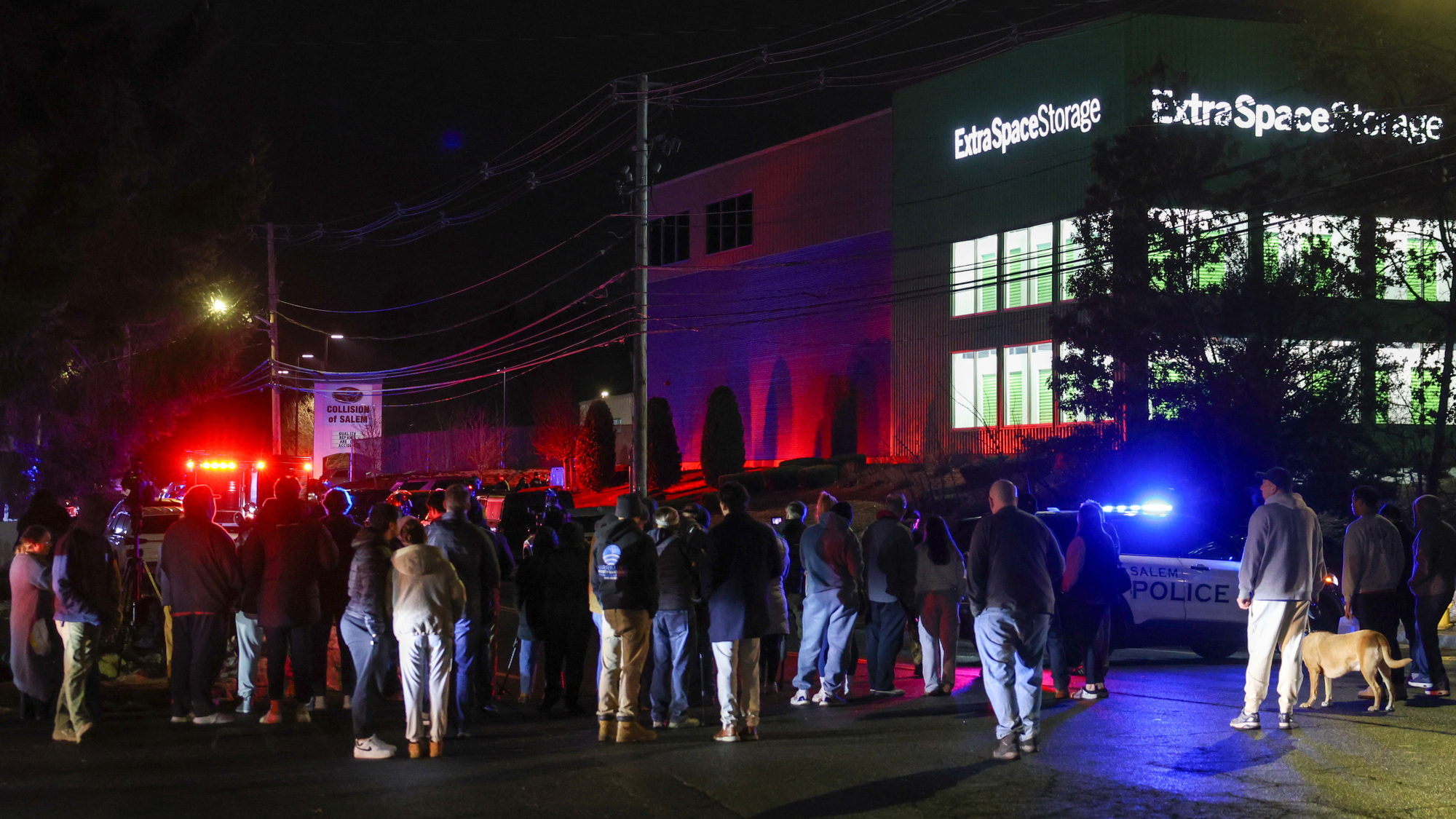How the Supreme Court could decide it's a federal crime to lie about your height on Tinder


A free daily email with the biggest news stories of the day – and the best features from TheWeek.com
You are now subscribed
Your newsletter sign-up was successful
A cybersecurity law in front of the Supreme Court could have Americans reconsidering sharing their Netflix password.
The court began hearing arguments in Van Buren v. United States on Monday, where justices will decide just what "unauthorized use" of a computer means in the 1986 Computer Fraud and Abuse Act. The case involves a former police sergeant who shared license plate data with an acquaintance, but supporters of the plaintiff warn the Supreme Court's interpretation of the law could have far broader consequences.
Even though the CFAA was enacted well before the current internet era, it still governs "unauthorized" access to a computer or network, TechCrunch describes. In this case, former police sergeant Nathan Van Buren was found guilty of violating the CFAA because he did not use the data for its authorized purpose. The Supreme Court is set to interpret just what "unauthorized" access really means.
The Week
Escape your echo chamber. Get the facts behind the news, plus analysis from multiple perspectives.

Sign up for The Week's Free Newsletters
From our morning news briefing to a weekly Good News Newsletter, get the best of The Week delivered directly to your inbox.
From our morning news briefing to a weekly Good News Newsletter, get the best of The Week delivered directly to your inbox.
By defining unauthorized too broadly, the court could "decide whether millions of ordinary Americans are committing a federal crime whenever they engage in computer activities that, while common, don't comport with an online service or employer's terms of use," Riana Pfefferkorn, associate director of surveillance and cybersecurity at Stanford University's law school, told TechCrunch. That could include sharing a streaming service password, lying on a dating site, or using a work computer for a non-work purpose, Pfefferkorn said.
Pfefferkorn's colleague Jeff Fisher, who is representing Van Buren, was sure to note in his briefs how the Supreme Court could end up opening a can of worms for Tinder and its 5'11" clientele. Kathryn Krawczyk
A free daily email with the biggest news stories of the day – and the best features from TheWeek.com
Kathryn is a graduate of Syracuse University, with degrees in magazine journalism and information technology, along with hours to earn another degree after working at SU's independent paper The Daily Orange. She's currently recovering from a horse addiction while living in New York City, and likes to share her extremely dry sense of humor on Twitter.
-
 ‘States that set ambitious climate targets are already feeling the tension’
‘States that set ambitious climate targets are already feeling the tension’Instant Opinion Opinion, comment and editorials of the day
-
 Mixing up mixology: The year ahead in cocktail and bar trends
Mixing up mixology: The year ahead in cocktail and bar trendsthe week recommends It’s hojicha vs. matcha, plus a whole lot more
-
 Labor secretary’s husband barred amid assault probe
Labor secretary’s husband barred amid assault probeSpeed Read Shawn DeRemer, the husband of Labor Secretary Lori Chavez-DeRemer, has been accused of sexual assault
-
 Maxwell pleads 5th, offers Epstein answers for pardon
Maxwell pleads 5th, offers Epstein answers for pardonSpeed Read She offered to talk only if she first received a pardon from President Donald Trump
-
 Hong Kong jails democracy advocate Jimmy Lai
Hong Kong jails democracy advocate Jimmy LaiSpeed Read The former media tycoon was sentenced to 20 years in prison
-
 Ex-Illinois deputy gets 20 years for Massey murder
Ex-Illinois deputy gets 20 years for Massey murderSpeed Read Sean Grayson was sentenced for the 2024 killing of Sonya Massey
-
 Sole suspect in Brown, MIT shootings found dead
Sole suspect in Brown, MIT shootings found deadSpeed Read The mass shooting suspect, a former Brown grad student, died of self-inflicted gunshot wounds
-
 France makes first arrests in Louvre jewels heist
France makes first arrests in Louvre jewels heistSpeed Read Two suspects were arrested in connection with the daytime theft of royal jewels from the museum
-
 Trump pardons crypto titan who enriched family
Trump pardons crypto titan who enriched familySpeed Read Binance founder Changpeng Zhao pleaded guilty in 2023 to enabling money laundering while CEO of the cryptocurrency exchange
-
 Thieves nab French crown jewels from Louvre
Thieves nab French crown jewels from LouvreSpeed Read A gang of thieves stole 19th century royal jewels from the Paris museum’s Galerie d’Apollon
-
 Arsonist who attacked Shapiro gets 25-50 years
Arsonist who attacked Shapiro gets 25-50 yearsSpeed Read Cody Balmer broke into the Pennsylvania governor’s mansion and tried to burn it down
